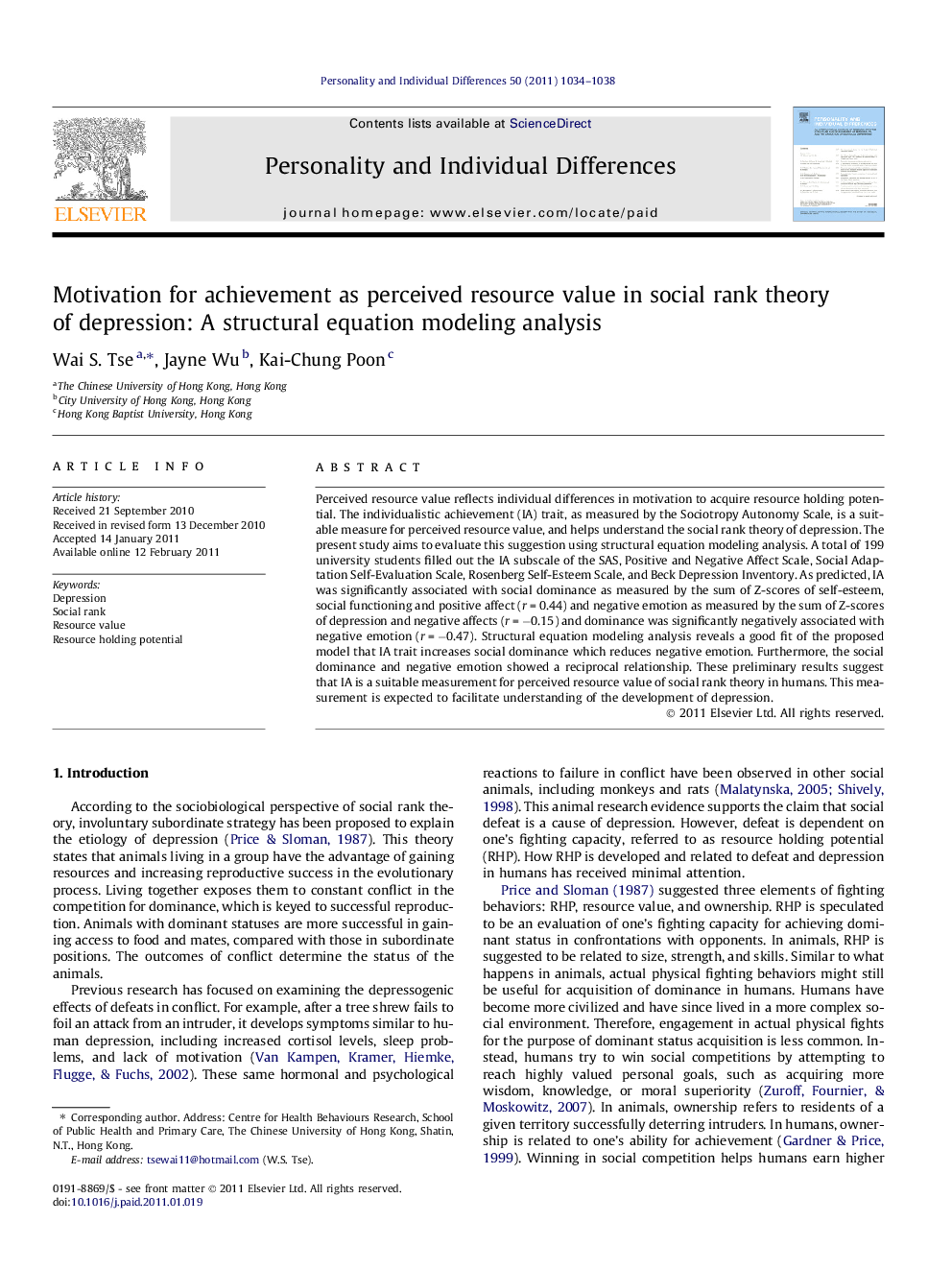| Article ID | Journal | Published Year | Pages | File Type |
|---|---|---|---|---|
| 891537 | Personality and Individual Differences | 2011 | 5 Pages |
Perceived resource value reflects individual differences in motivation to acquire resource holding potential. The individualistic achievement (IA) trait, as measured by the Sociotropy Autonomy Scale, is a suitable measure for perceived resource value, and helps understand the social rank theory of depression. The present study aims to evaluate this suggestion using structural equation modeling analysis. A total of 199 university students filled out the IA subscale of the SAS, Positive and Negative Affect Scale, Social Adaptation Self-Evaluation Scale, Rosenberg Self-Esteem Scale, and Beck Depression Inventory. As predicted, IA was significantly associated with social dominance as measured by the sum of Z-scores of self-esteem, social functioning and positive affect (r = 0.44) and negative emotion as measured by the sum of Z-scores of depression and negative affects (r = −0.15) and dominance was significantly negatively associated with negative emotion (r = −0.47). Structural equation modeling analysis reveals a good fit of the proposed model that IA trait increases social dominance which reduces negative emotion. Furthermore, the social dominance and negative emotion showed a reciprocal relationship. These preliminary results suggest that IA is a suitable measurement for perceived resource value of social rank theory in humans. This measurement is expected to facilitate understanding of the development of depression.
